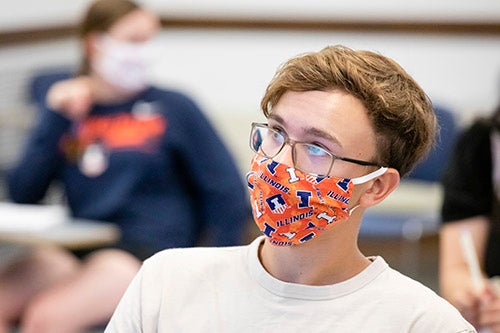COVID-Corps: Action for Solutions (LAS 199)
 Get involved in making a difference in the community.
Get involved in making a difference in the community.
As our nation continued to confronted the COVID-19 pandemic, students took advantage of opportunities to make a difference through COVID-Corps: Action for Solutions (LAS 199). Students could earn credit as they assisted in conducting research and helping mitigate the pandemic on our campus, in our community, and in the world.
This course connected LAS undergraduates with faculty and community organizations, creating partnerships to help solve a real-world problem, the COVID-19 pandemic. Participants advanced their leadership skills and social responsibility while experiencing hands-on learning and making a lasting impact on the world.
Read a story about the COVID-Corps experience.
What students experienced
- Get connected to an opportunity to engage in research, education, and virus management-mitigation activities through your own initiative or by viewing opportunities:
- CUVolunteer
- Serve Illinois
- Office of Volunteer Programs
- Office of Undergraduate Research
- You don't need to be on campus to participate! Connect with local organizations to see how you can get involved. Here are some ideas.
- Enroll in a section of LAS 199 (CRN 63772) for 1 credit hour. This course is a special topics course that will:
- Guide students’ learning about the pandemic, leadership, and values for civic engagement
- Provide an opportunity for students to share their experience in their special project work with other students and learn from each other
- Help students craft their story around this experience, including how it has advanced leadership and professional development in the community
- Complete prep work, including identifying personal goals for the experience.
- Participate in your opportunity and LAS 199. The course will provide chances for you to reflect on your experience, including how it is helping you grow as an individual.
- Craft your COVID-19 service or research story at the completion of the semester, including through creating a website to discuss what you gained in education and advocacy surrounding the pandemic.





